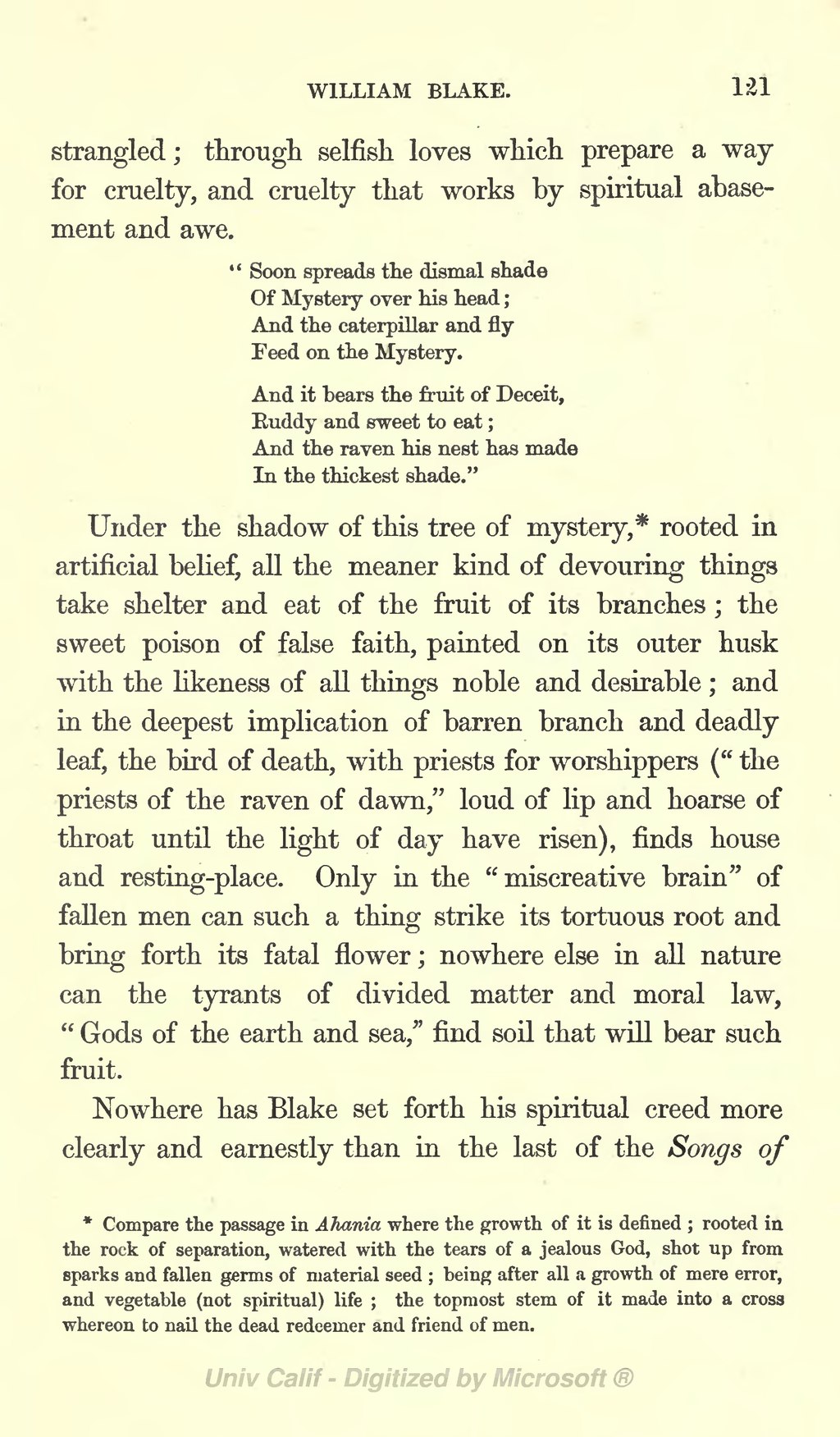strangled; through selfish loves which prepare a way for cruelty, and cruelty that works by spiritual abasement and awe.
"Soon spreads the dismal shade
Of Mystery over his head;
And the caterpillar and fly
Feed on the Mystery.
And it bears the fruit of Deceit,
Buddy and sweet to eat;
And the raven his nest has made
In the thickest shade."
Under the shadow of this tree of mystery,[1] rooted in artificial belief, all the meaner kind of devouring things take shelter and eat of the fruit of its branches; the sweet poison of false faith, painted on its outer husk with the likeness of all things noble and desirable; and in the deepest implication of barren branch and deadly leaf, the bird of death, with priests for worshippers ("the priests of the raven of dawn," loud of lip and hoarse of throat until the light of day have risen), finds house and resting-place. Only in the "miscreative brain" of fallen men can such a thing strike its tortuous root and bring forth its fatal flower; nowhere else in all nature can the tyrants of divided matter and moral law, "Gods of the earth and sea," find soil that will bear such fruit.
Nowhere has Blake set forth his spiritual creed more clearly and earnestly than in the last of the Songs of
- ↑ 'Compare the passage in Ahania where the growth of it is defined; rooted in the rock of separation, watered with the tears of a jealous God, shot up from sparks and fallen germs of material seed; being after all a growth of mere error, and vegetable (not spiritual) life; the topmost stem of it made into a cross whereon to nail the dead redeemer and friend of men.
